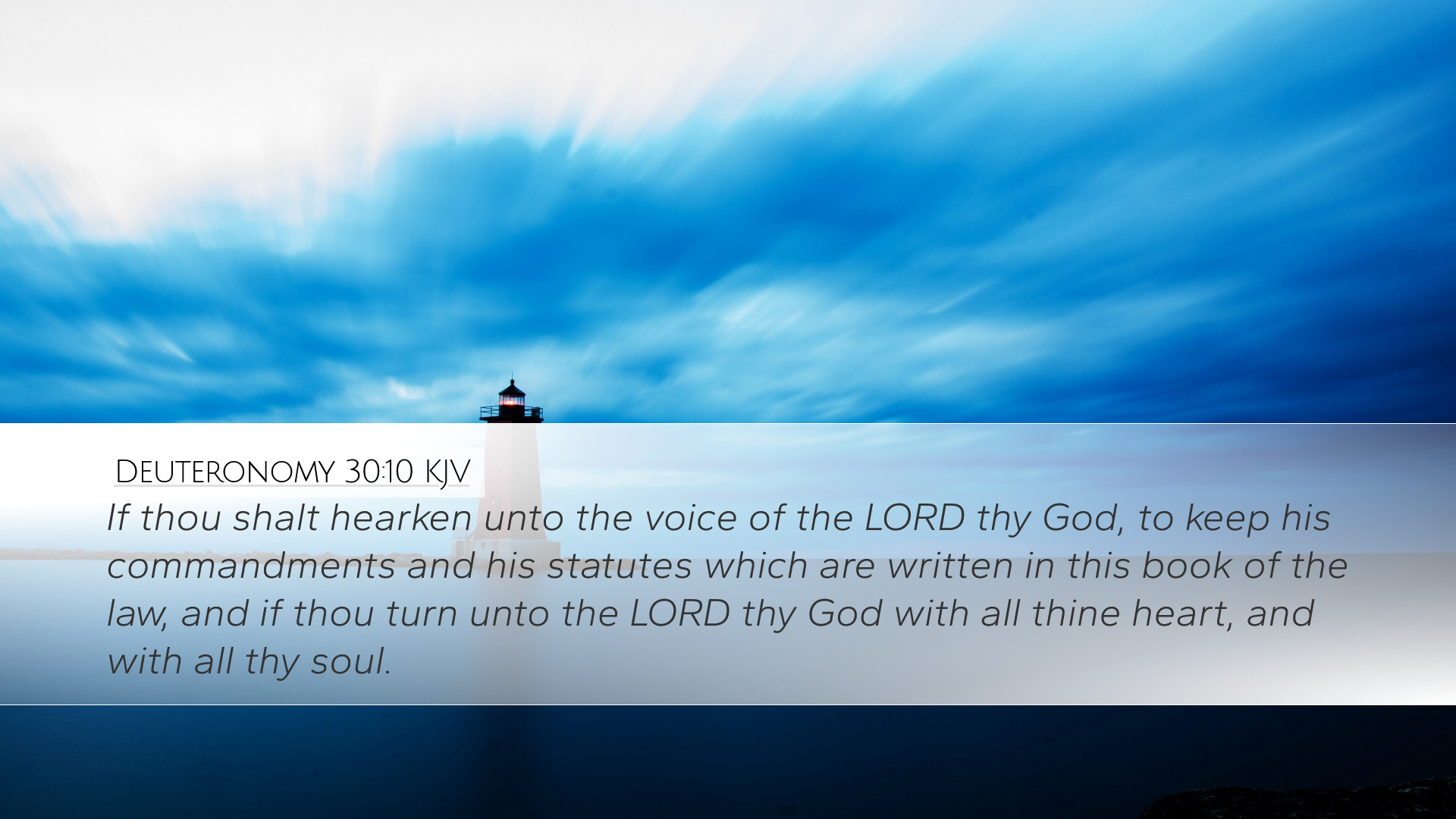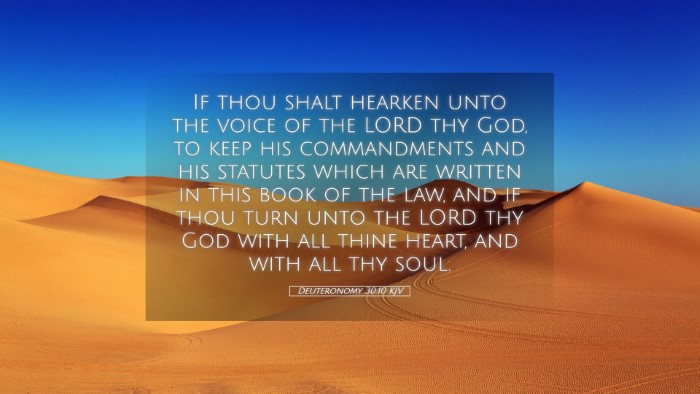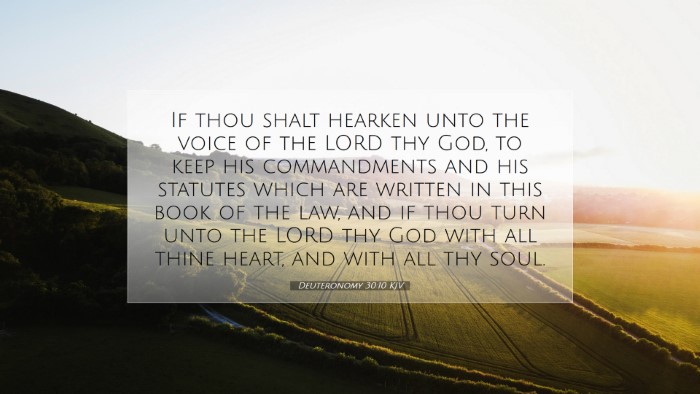Commentary on Deuteronomy 30:10
Verse: "If thou shalt hearken unto the voice of the Lord thy God, to keep his commandments and his statutes which are written in this book of the law, and if thou turn unto the Lord thy God with all thine heart and with all thy soul."
Introduction
Deuteronomy 30:10 captures a pivotal moment in the life of Israel as they are on the verge of entering the Promised Land. This passage invites deep theological reflection regarding the relationship between obedience, covenant, and the heart’s disposition towards God. Notable theologians from public domain commentaries — Matthew Henry, Albert Barnes, and Adam Clarke — provide valuable insights that deepen our understanding of this text.
Contextual Analysis
The Book of Deuteronomy serves as a reminder of God's covenant with Israel, reiterating the laws and expectations that God has for His people. In the preceding chapters, Moses recounts their history, emphasizing both the graciousness of God and the necessity of obedience. This verse marks a conditional statement: the blessings of the covenant hinge on a faithful response from the people.
Matthew Henry's Insights
Henry emphasizes that true obedience is rooted in the heart. He articulates that the expression "with all thine heart and with all thy soul" indicates a total commitment to God’s commandments. He posits that such wholeheartedness is not merely about external compliance but a deep-seated love for God that manifests in all actions and decisions.
Albert Barnes' Perspective
Barnes expands on the idea of listening to the "voice of the Lord." He notes that to hear God’s voice signifies an active engagement, which leads to obedience. Barnes also discusses the importance of the "book of the law," emphasizing that the written law serves not only as a guide but also as a source of awareness of God’s will. He draws attention to the stipulation that this obedience should encompass the entirety of one's being — heart and soul.
Adam Clarke's Commentary
Clarke elaborates on the transition implied in this verse. He articulates that turning unto the Lord is essential for restoration and renewal of devotion. Clarke notes that the law is not presented as a burdensome requirement but rather as a path to life and prosperity. The call to return indicates a movement from disobedience to reverence, which reflects a deeper understanding of God’s character and intentions.
Theological Implications
Deuteronomy 30:10 does not merely serve as a historical account; it possesses profound theological implications applicable to contemporary faith practices. The call to hear and obey resonates across generations, stressing the importance of a responsive heart.
The Relation of Heart and Obedience
As illuminated by the commentaries, there is an intrinsic relationship between heart posture and obedience. Obedience should stem from an understanding of God’s loving nature rather than fear of punishment. This understanding transforms obedience from mere duty to joyful engagement in a loving relationship with God.
Covenant and Conditionality
The conditional nature of the blessings reflects a broader theological principle in the Scripture: God’s faithfulness linked to human response. This complicates the simple notion of a unilateral covenant; rather, it is dynamic, inviting the faithful into a responsive relationship that reflects God’s character. The commentaries unite in underscoring that fulfilling the law is not about legalism but a covenant relationship rooted in love and faith.
Practical Applications for Today
For pastors, students, theologians, and Bible scholars, the insights drawn from Deuteronomy 30:10 can inform practical applications.
-
Self-Examination:
Believers are encouraged to regularly assess their heart posture towards God. Are they merely going through the motions of religious practice, or do they engage deeply with the commandments?
-
Encouragement of Holistic Worship:
The call to serve God with "all thine heart and all thy soul" advocates for a comprehensive expression of worship that encompasses every aspect of life.
-
Prioritization of God’s Word:
Leaders should prioritize teaching the Scriptures, helping congregants understand and internalize God's commands as pathways to blessings rather than restrictions.
Conclusion
In conclusion, Deuteronomy 30:10 serves as a central tenet for understanding the nature of the relationship between God and His people. The commentaries by Henry, Barnes, and Clarke highlight the need for heartfelt obedience, the significance of God's law, and the profound implications of covenant faithfulness. As we reflect on these teachings, we are reminded that our walk of faith is a dynamic interplay between divine grace and our responsive devotion.


